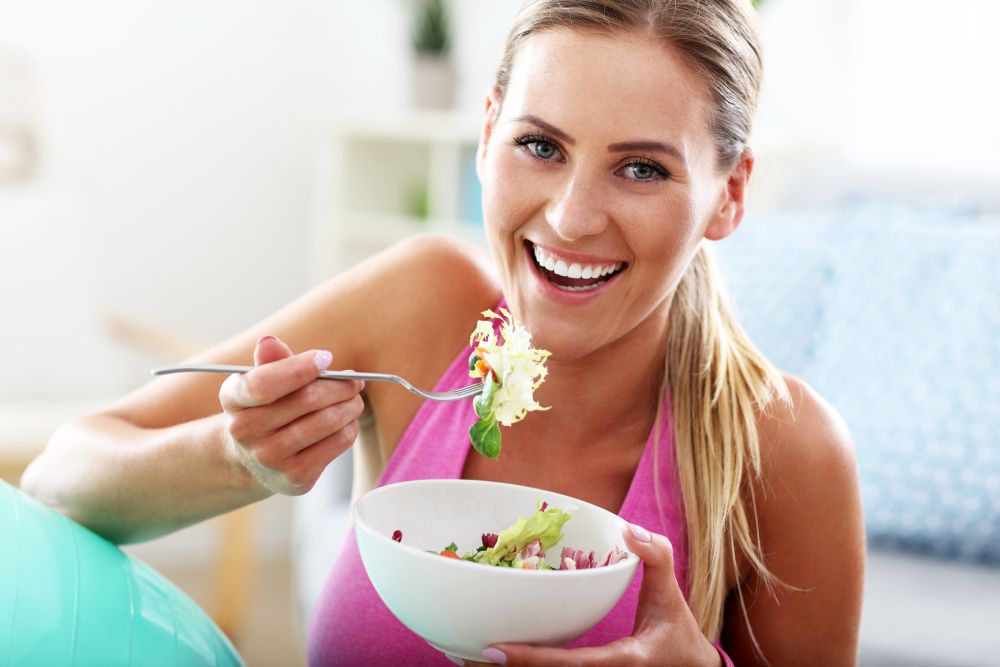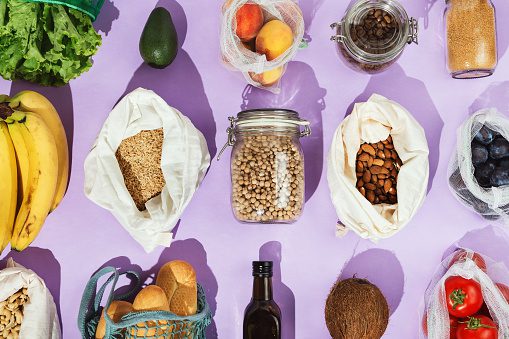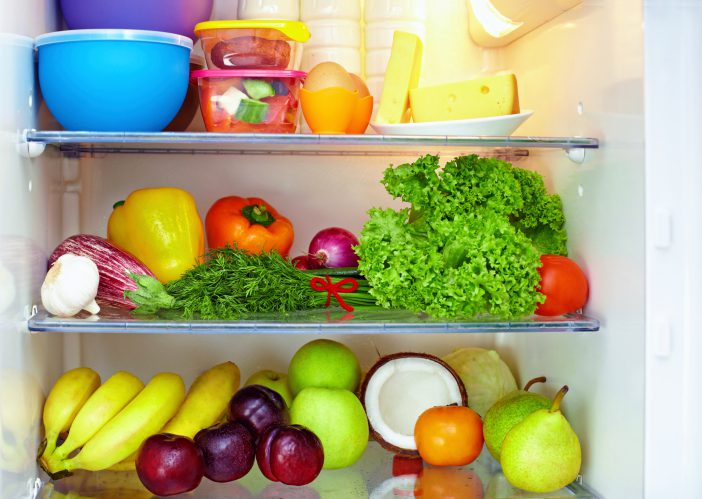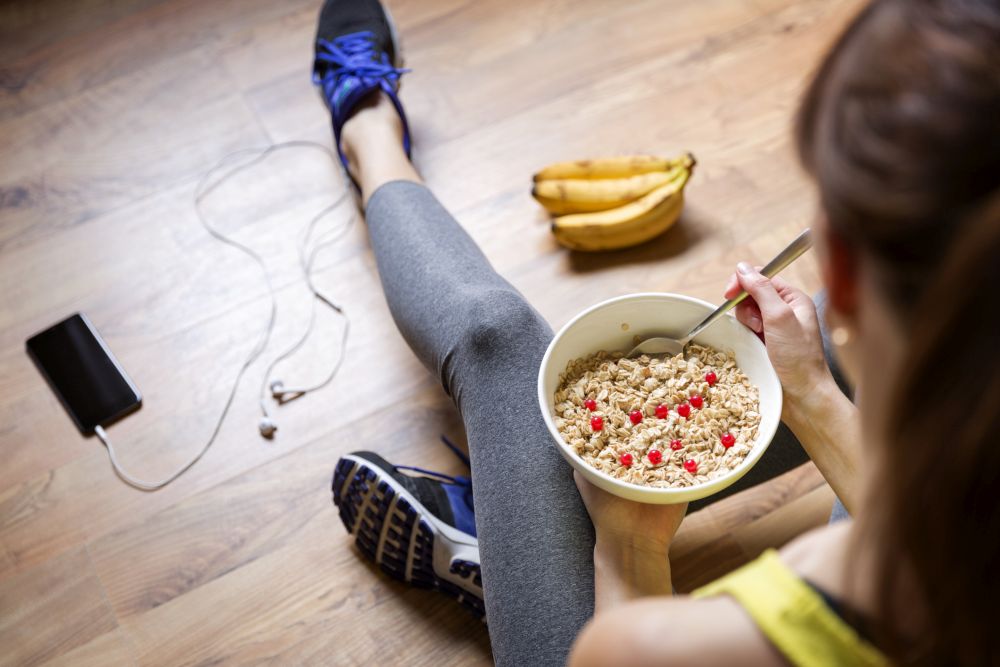Nutrition advice for vegetarian runners
Elite marathoner and dietitian Rachel Hannah says that vegetarian diets can be healthy for runners, as long as they're done properly

Nutrition is very important for runners, and having a healthy diet can be the difference between smashing your PB or bonking at kilometre 30 in your next marathon. There is no perfect runner’s diet (as much as we wish there was), and so every individual has to figure out what works for them. Some runners, whether it’s for ethical, environmental, health or performance reasons, choose to adopt a vegetarian diet, and despite what some might say, this can be a healthy and effective way to fuel your training. We spoke with elite Canadian marathoner and registered dietitian Rachel Hannah to find out how vegetarian athletes can optimize their nutrition so they can continue to train hard and perform well on race day.

RELATED: Risks of fractures higher in vegetarians and vegans, new study reports
“Vegetarian eating can be very healthy, but it can also not be,” says Hannah. “It depends on how someone is planning their diet.”
Hannah says an appropriately planned vegetarian diet can provide runners with enough energy and the right amounts of macronutrients (protein, fat and carbohydrates) to support both their health and performance. She also points out that there are several benefits of a vegetarian diet over one that includes meat, and they include:
- Lower blood pressure and cholesterol levels
- Lower risk of hypertension and Type 2 Diabetes
- Lower overall cancer rates
- Higher intake of fibre, nutrient-rich carbohydrates, antioxidants and phytochemicals
On the flip side, Hannah says vegetarian diets can also be lower in energy, protein, fat, vitamin B12, riboflavin, vitamin D, iron and zinc, which can increase a runner’s risk of specific nutrient deficiencies and may not always provide enough calories to support a high volume of training. Because of this, vegetarian athletes have higher requirements for zinc, iron and calcium, since plant sources of these foods aren’t as well absorbed by the body. Hannah says female athletes, in particular, are at a higher risk for being deficient in some of these key nutrients, including sufficient calories.
“Sometimes athletes can almost eat too healthy,” explains Hannah, “so they’re getting too full from eating so much fibre, and they’re unable to meet their calorie requirements.”

RELATED: Debunking the most common endurance sport nutrition myths
Hannah’s tips for vegetarian athletes
First and foremost, Hannah says vegetarian runners need to focus on getting some protein every time they eat. Protein is made up of 13 amino acids, nine of which we have to get from our diet. Animal protein contains all nine amino acids, and so we refer to those as complete. Plant-based foods also contain amino acids, but they might be missing one or two, and so they’re incomplete. Hannah explains that as long as vegetarian athletes eat a variety of plant-based protein sources, they will consume all the necessary amino acids. She gave us some examples of plant-based protein combinations that can help these runners meet their nutrient requirements.
- rice and beans
- whole-grain bread and nut butter
- roasted chickpeas and mixed nuts
- hummus and pita
- buckwheat noodles with edamame
- hemp seeds and oatmeal
- quinoa and beans
Hannah says supplementing with protein is also an option, but it is not necessary when consuming a diet high in protein-rich plant foods.
She also says vegetarian runners need to make sure that they’re meeting their carbohydrate requirements to ensure that they’re getting enough calories to support their training. As previously mentioned, this can sometimes be difficult because vegetarian diets can be so high in fibre that you get too full before you can eat enough calories.
Other key nutrients that vegetarian athletes should pay attention to are Omega-3 fatty acids, zinc, iodine, vitamin B12, vitamin D, calcium, taurine and iron. Iron is already a concern for endurance athletes because even in meat-eaters it can be quite low, and so supplementation may be required regardless. Hannah strongly encourages athletes to talk to a doctor and get their bloodwork done to determine whether supplementation is the right choice for them.

Are there any runners who shouldn’t follow a vegetarian diet?
For the most part, Hannah says anyone can follow a vegetarian diet as long as they do it properly, but if an athlete is experiencing extremely low iron and supplementation isn’t working, it may not be a great choice. Still, if a runner in that situation really wants to eat vegetarian, she says that iron infusions are an option.
“Already iron is very limited through animal sources because of poor absorption,” says Hannah, “so if someone has iron-deficiency anemia or is having trouble absorbing certain nutrients, then I would just be cautious on limiting what types of foods they’re getting.”
Runners who have other digestive issues, like Crohn’s disease, for example, should also be more cautious with foods they’re avoiding, but if eating a vegetarian diet is something you feel strongly about, it still is possible. Additionally, if you’re struggling with Relative Energy Deficiency Syndrome (RED-S), you should be careful about cutting foods from your diet.
“As long as you’re spending time organizing your meals and as long as you put the effort in, it can be really well-balanced and healthy,” says Hannah. “I don’t see how it could impact performance.”


